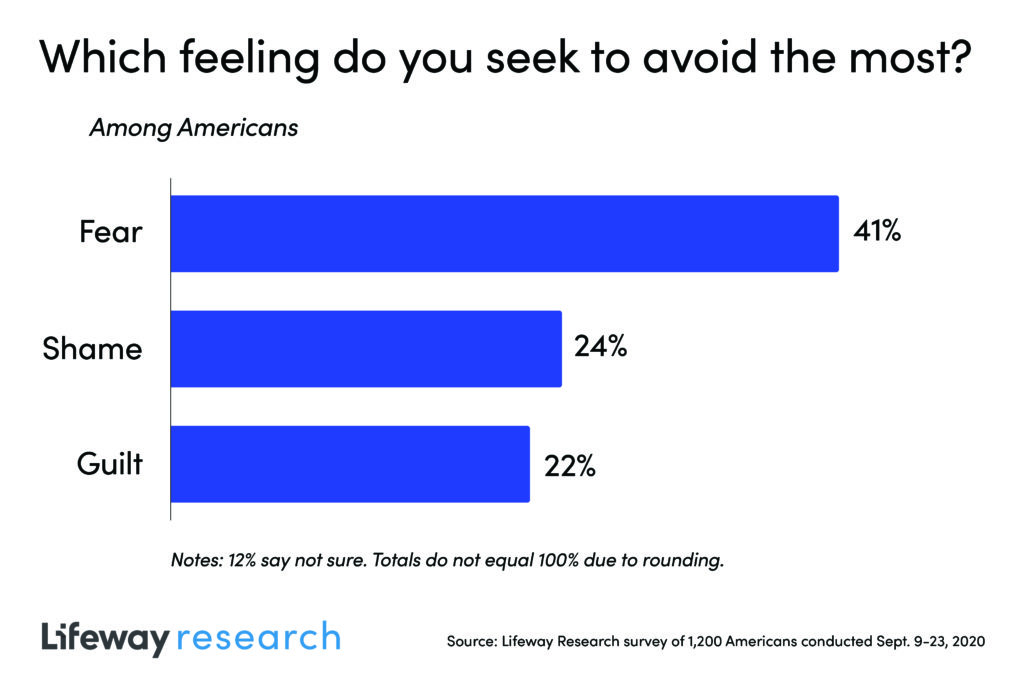
By Y Bonesteele
Since the beginning of creation, fear and hope have been parts of our psyche. But even as we are made in the image of God, fear and hope do not come from God in the sense that He has these traits too. For He neither fears, nor hopes, because He knows all things, is beyond time, and is in control of all things.
So where does our fear and our hope come from?
The Lies that Started It All
When Satan tempted Eve in the garden, lies led mankind into disobeying God, resulting in the fall.
Now the serpent was the most cunning of all the wild animals that the Lord God had made. He said to the woman, “Did God really say, ‘You can’t eat from any tree in the garden’?”
The woman said to the serpent, “We may eat the fruit from the trees in the garden. But about the fruit of the tree in the middle of the garden, God said, ‘You must not eat it or touch it, or you will die.’”
“No! You will certainly not die,” the serpent said to the woman. “In fact, God knows that when you eat it your eyes will be opened and you will be like God, knowing good and evil” (Genesis 3:1-5).
Fear and hope based on lies lead us to do things contrary to God’s commands. — Y Bonesteele Click To TweetEve, in that moment, had both fear and hope, but fear and hope because of lies. She was afraid touching the tree would kill her, which wasn’t true, and which God never said. It was her own lie to herself. And she was hopeful eating the fruit would make her like God, which wasn’t true in the way she expected either—a lie Satan gave her.
Fear and hope based on lies lead us to do things contrary to God’s commands.
Avoidance of Fear and False Hope
At the end of 2020, Lifeway Research asked U.S. adults which feeling they sought to avoid the most: fear, shame, or guilt. Four in 10 U.S. adults (41%) said fear, the clear winner of the three options. Understandably, the global pandemic had something to do with these responses because the same study in 2016 showed only 30% of Americans saying they wanted to avoid fear, with shame being the winner at 38%.

Fear is a universal emotion that isn’t always a negative trait to have. Fear based on truth prevents us from harming ourselves, like an appropriate fear of fire or water that informs us to be careful. But when we see that the Bible’s most frequent command is to not be afraid, we must ask ourselves why do we fear and what is it we’re truly afraid of?
From the beginning of creation, we see that the times we are inappropriately afraid are times when we start believing lies. The lies that say we are sufficient. That God is unapproachable. That we can control our destiny. That suffering is to be avoided at all costs. That God is not all-powerful. That death is not a reality. That our world is not broken and not temporary. That fame and fortune will make us happy. And the list goes on. These are the subtle lies that cause us to fear. These are also the subtle lies that cause us to hope in the wrong things.
In the same Lifeway Research study, when asked, “What has given you hope during the adversity you have seen during 2020?” selecting all that applies, 40% said kindness people have shown, 38% said relationships, 36% said my religious faith, 33% said my finances are stable, and 19% said the knowledge of experts and scientist.
Hope in things that aren’t consistent is temporary hope at best and false hope at worst. — Y Bonesteele Click To TweetWe can have hope in many things, but hope that sustains and that comes through is one that is based on solid truth. Although many found hope in kindness and relationships, finances and knowledge, and even faith, sadly, these things come and go, ebb and flow, like the wind and shifting shadows. Even faith is unstable when grounded in the wrong things. Hope in things that aren’t consistent is temporary hope at best and false hope at worst.
Along with the subtle lies that come into our minds, our culture tends to consume the lies put out by media, marketers, conspiracy theorists, and people who simply have nothing better to do than put forth lies into the world. And because information moves so fast, fact-checking is harder than ever because so many sources will pick up false information knowingly, or unknowingly, and it will spread like wildfire, causing more fear in the world. What are Christians to do?
Treasuring and Seeking Truth
Our culture tells us truth is relative and absolute truth is an absurd idea—it can’t be found. Of course, the dilemma for relativists is they must concede that their statements cannot be true as well, although many people don’t or won’t point that out. People outside the church and now inside the church no longer value treasuring and seeking truth. Why? Partly because it takes time and effort, it takes research and study, it’s not convenient, and perhaps, many of us are just too lazy to do the work or we simply enjoy the lies.
In this world, there are many things we will not know with 100% certainty this side of heaven, and some truths may be gray areas or nuanced. But there are definitely other things we can know and be clear about. Truth is not as difficult to find as we expect, if we seek it with our hearts and minds.
Truth is not as difficult to find as we expect, if we seek it with our hearts and minds. — Y Bonesteele Click To TweetIn our postmodern world, it may seem too evident to some, but clearly pastors and leaders must teach church members to value and seek out truth. We can no longer assume honesty and truth-seeking are values on everyone’s list. It’s too easy to cheat on our taxes. It’s too easy to claim unemployment when we have a side cash business that’s lucrative. It’s too easy to say “little white lies” and repeat accusations that we haven’t found evidence for, especially on social media platforms like Twitter or Facebook.
In pursuit of truth, let’s be “quick to listen, slow to speak, and slow to become angry” (James 1:19) and remind our church of these things. What happens when we do so? We stop believing and spreading the lies this world tells us, that Satan tells us, that we tell ourselves. And we start believing the truths of what the Bible and God tell us. And in doing so, we avoid the fear we desperately want to steer clear of. That’s how we can find true hope in the solid rock of Christ and the promises of His Word. Teaching the value of truth and honesty is more important today than ever.
“Finally brothers and sisters, whatever is true, whatever is honorable, whatever is just, whatever is pure, whatever is lovely, whatever is commendable—if there is any moral excellence and if there is anything praiseworthy—dwell on these things” (Philippians 4:8). And in doing so, fear will subside, and true hope will strengthen our people.

Y Bonesteele
Y is an editorial coordinator at Lifeway Christian Resources. She has her M.Div. from Talbot School of Theology with an emphasis in Evangelism and Discipleship.







